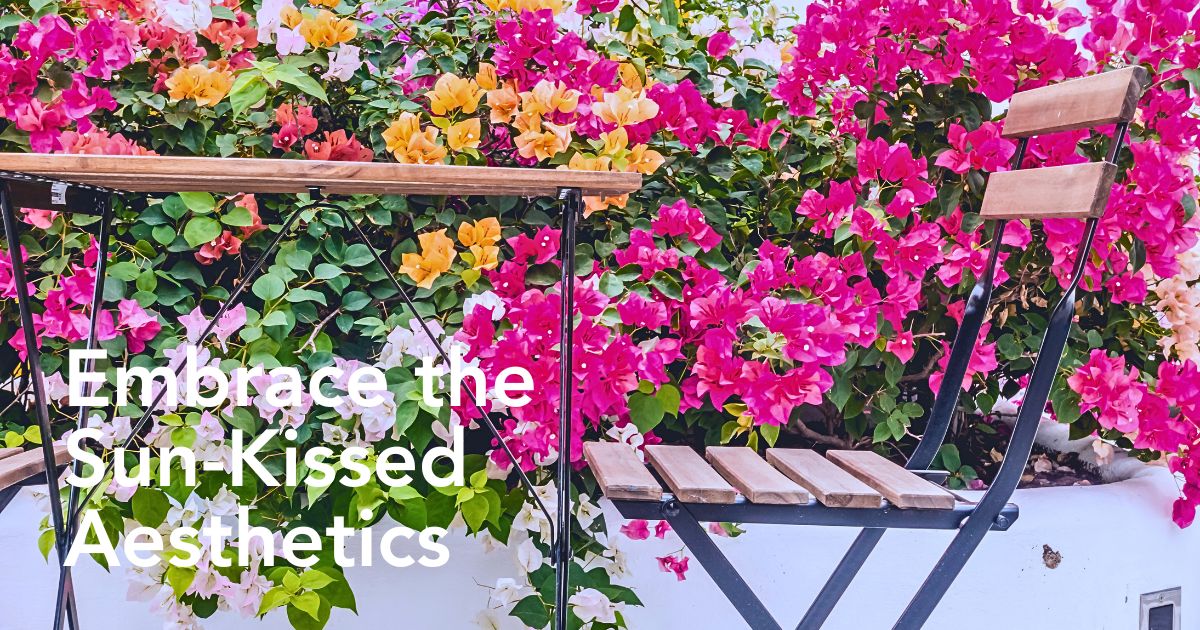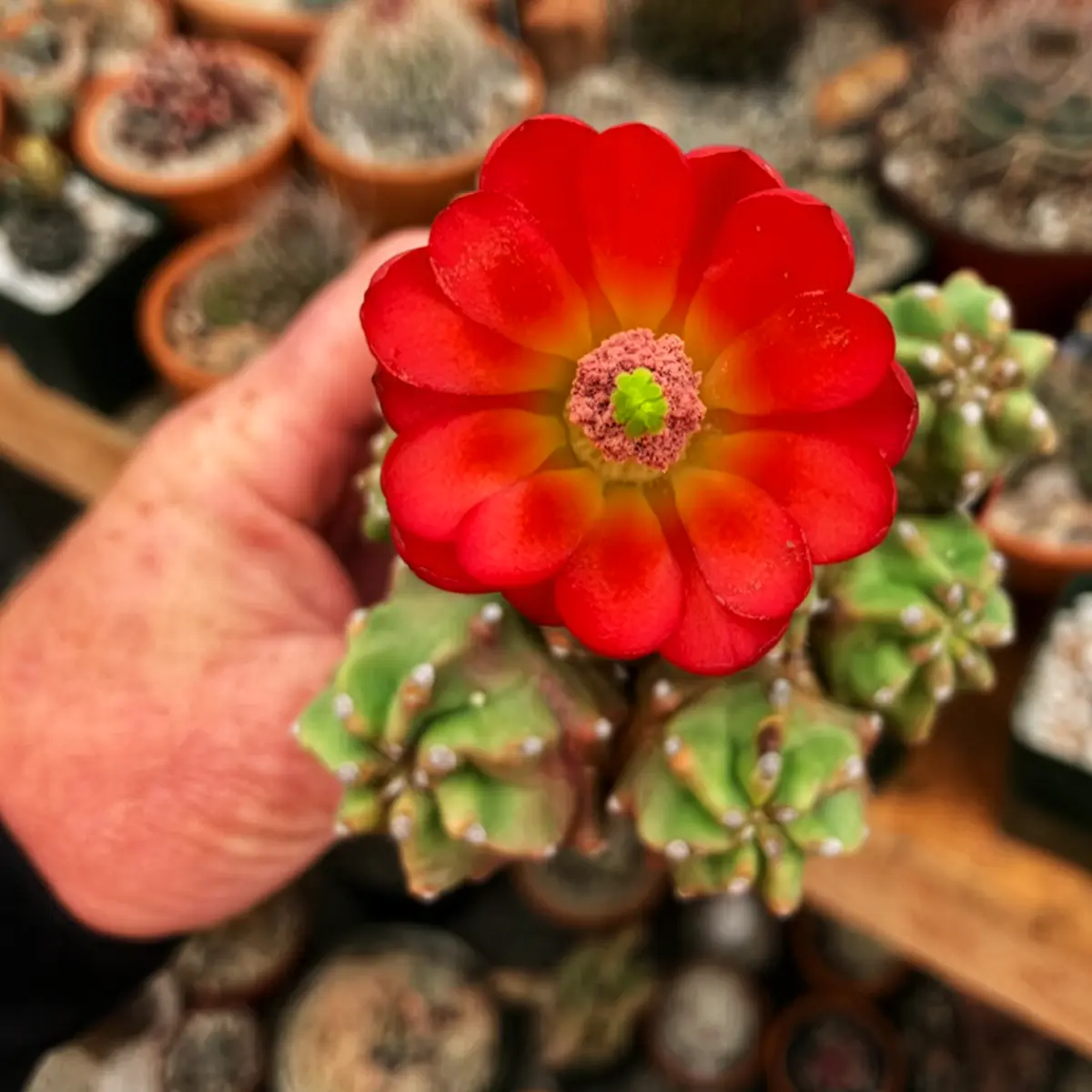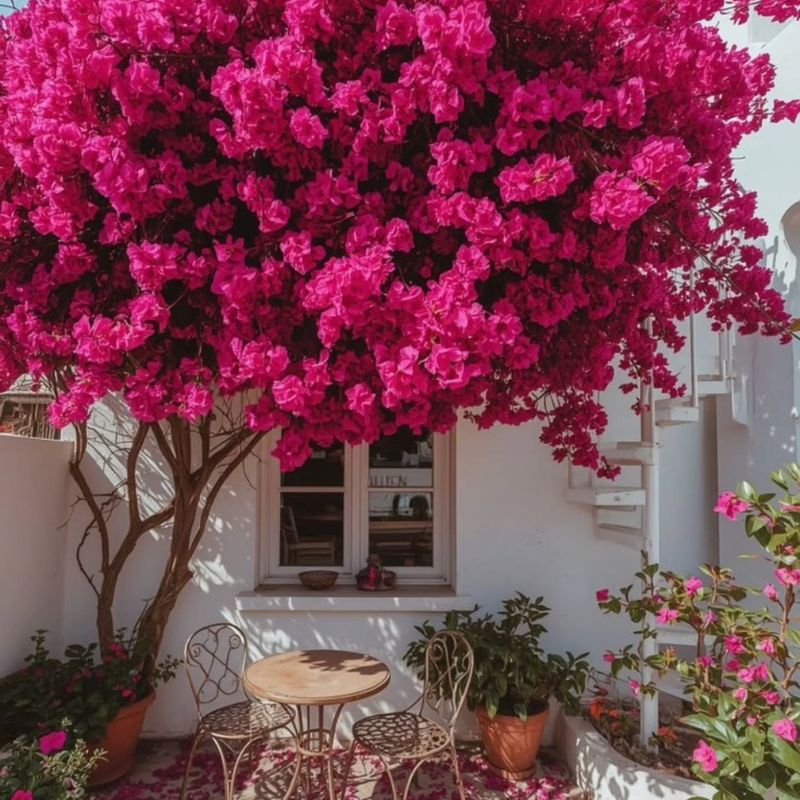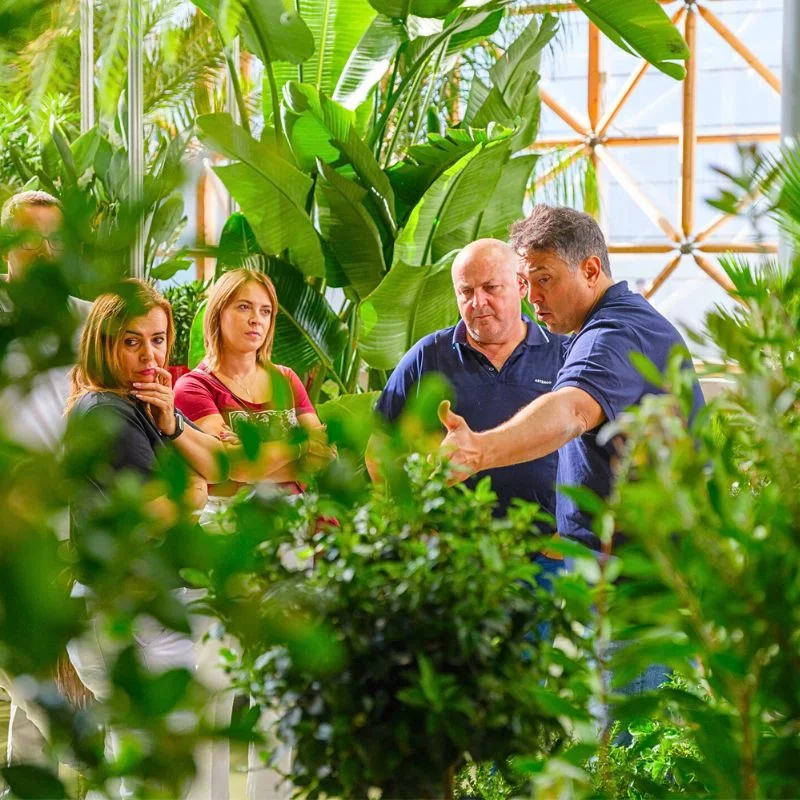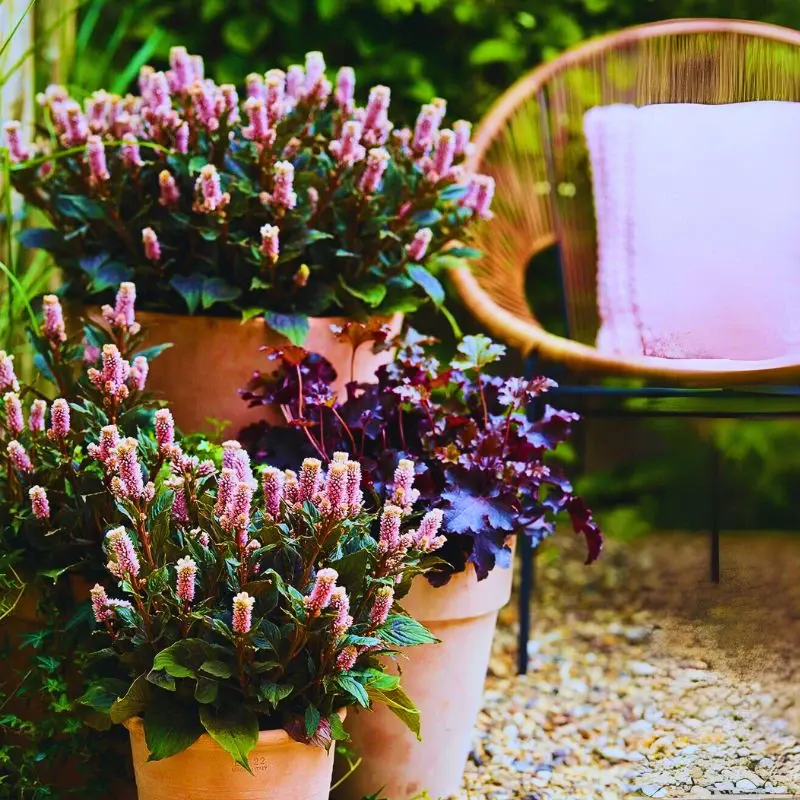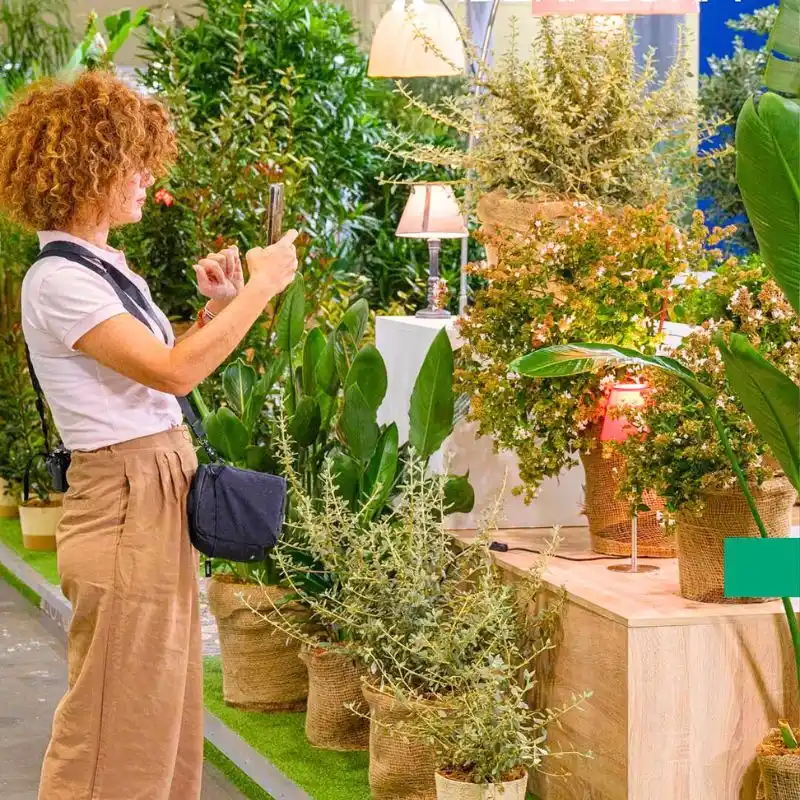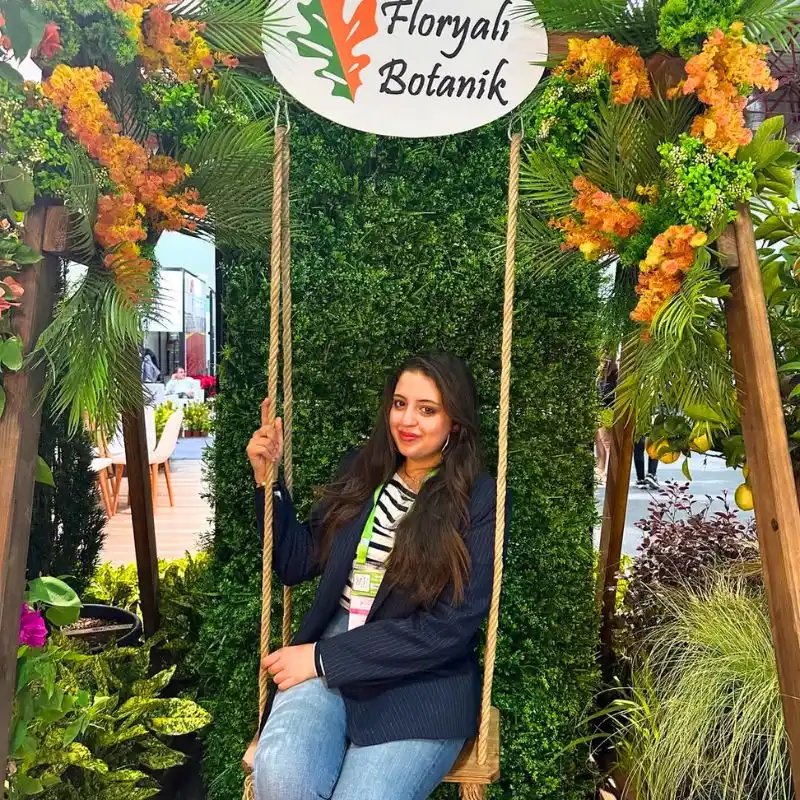There's nothing quite like the charm of Mediterranean gardens! They call to mind the lush landscapes reminiscent of the Mediterranean countryside — Italy, Spain, France, Greece, Cyprus, and Turkey among several others should ring a bell! — right in your own home. These gardens are quite well-known for their aesthetics. Think soft pastels, gravel paths, brightly colored tiles, and informal, drought-tolerant plantings!
Even so, with their delightful aesthetics, especially for the summer months, Mediterranean gardens bring out a sense of serene relaxation and luxury. They capture the essence of the region's laid-back lifestyle. Plus, the pleasant warm to hot breezy summers and milder winters. So, how can we incorporate these elements into home spaces and create an inviting garden that exemplifies the essence of the Mediterranean?
Understanding the Mediterranean Garden Aesthetics
Mediterranean gardens, generally, have some key physical characteristics. They often feature a warm, earthy color palette. Think terracotta, olive green, and sun-kissed yellows, plus bright splashes of color from flowers such as bougainvillea, lavender, and geraniums to create an exciting atmosphere.
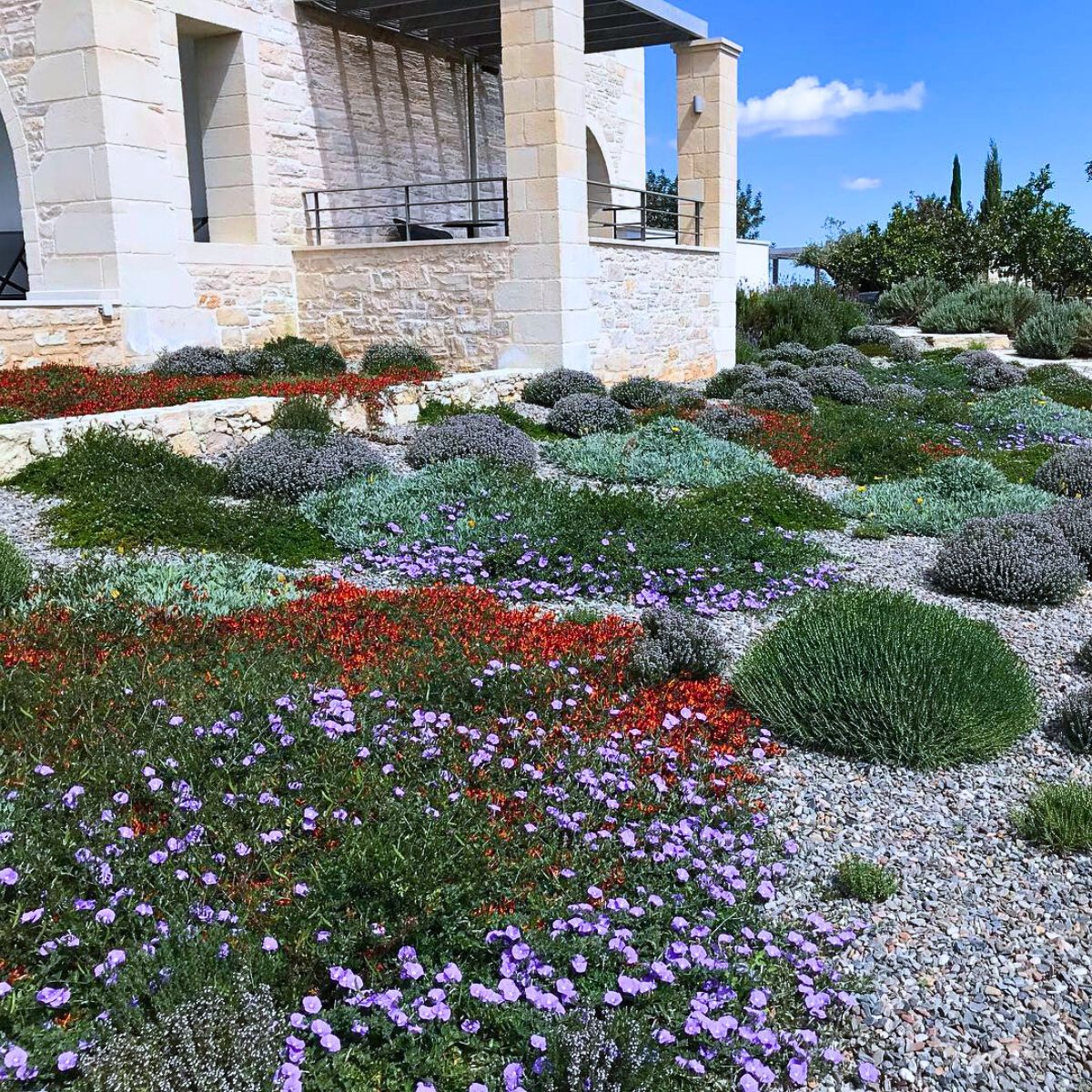
Photo by @mediterranean_gardening_greece
The use of varied textures is essential. Smooth stones, rough tree bark, and soft foliage combine to create a rich sensory experience. Then there is the element of layering plants of different heights adding depth, with taller plants at the back and shorter ones in front.
The gardens, also, incorporate hardscaping elements made from natural materials like stone, brick, and wood to complement the lushness of the plants. Pathways, walls, and seating areas often blend seamlessly with the surrounding flora. Fountains, ponds, and bubbling brooks are, likewise, common in Mediterranean gardens. These features not only provide a cooling effect but also attract wildlife and enhance the garden’s aesthetic.
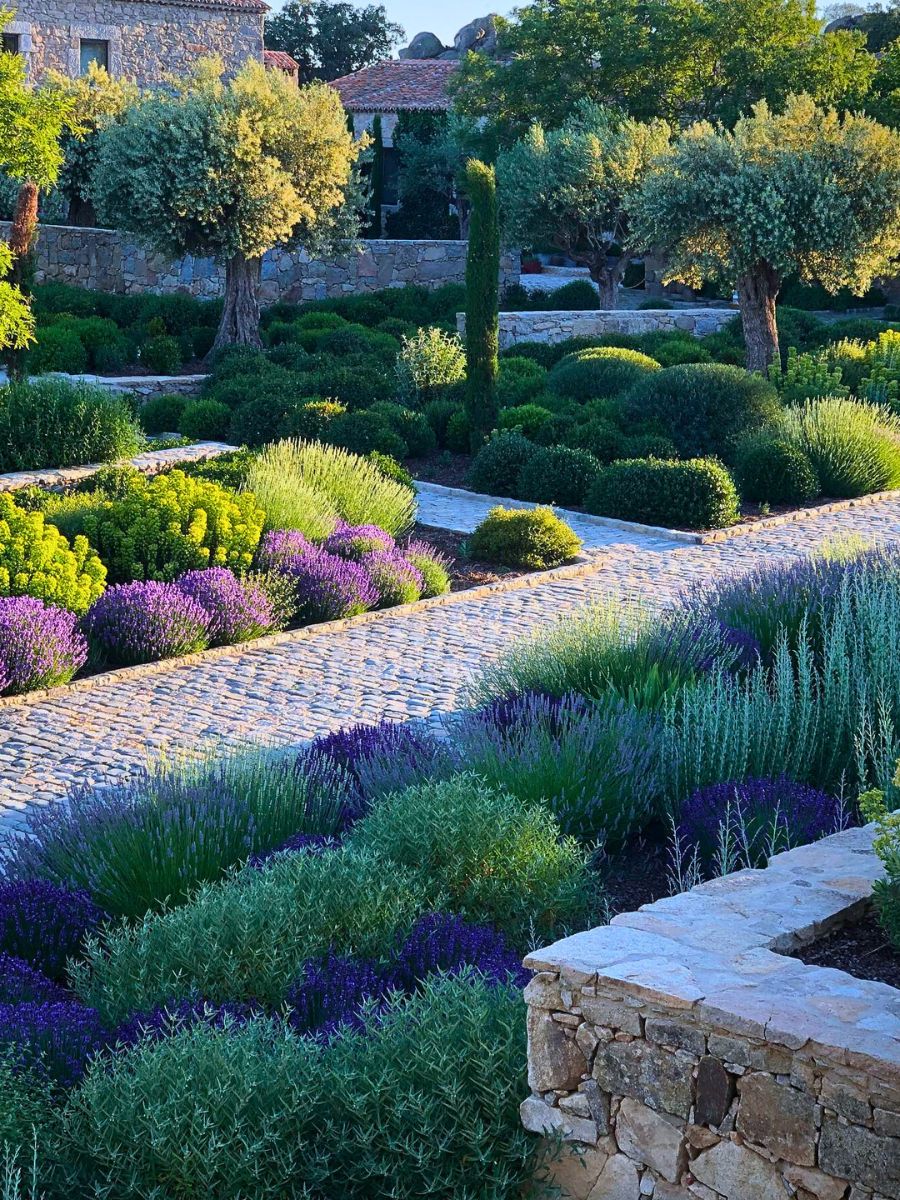
Photo by @gardeningplanning
Plus, the Mediterranean lifestyle emphasizes outdoor living, so incorporating areas for dining, lounging, or simply enjoying the scenery is essential. Pergolas, trellises, and shaded seating areas are popular additions in this regard.
Features of Mediterranean Gardens
Mediterranean gardens are quite unlike many others. They are inspired by the landscapes of countries bordering the Mediterranean Sea. Characterized by hot, dry summers and mild, wet winters, these gardens are designed to thrive in sunny, drought-prone conditions.
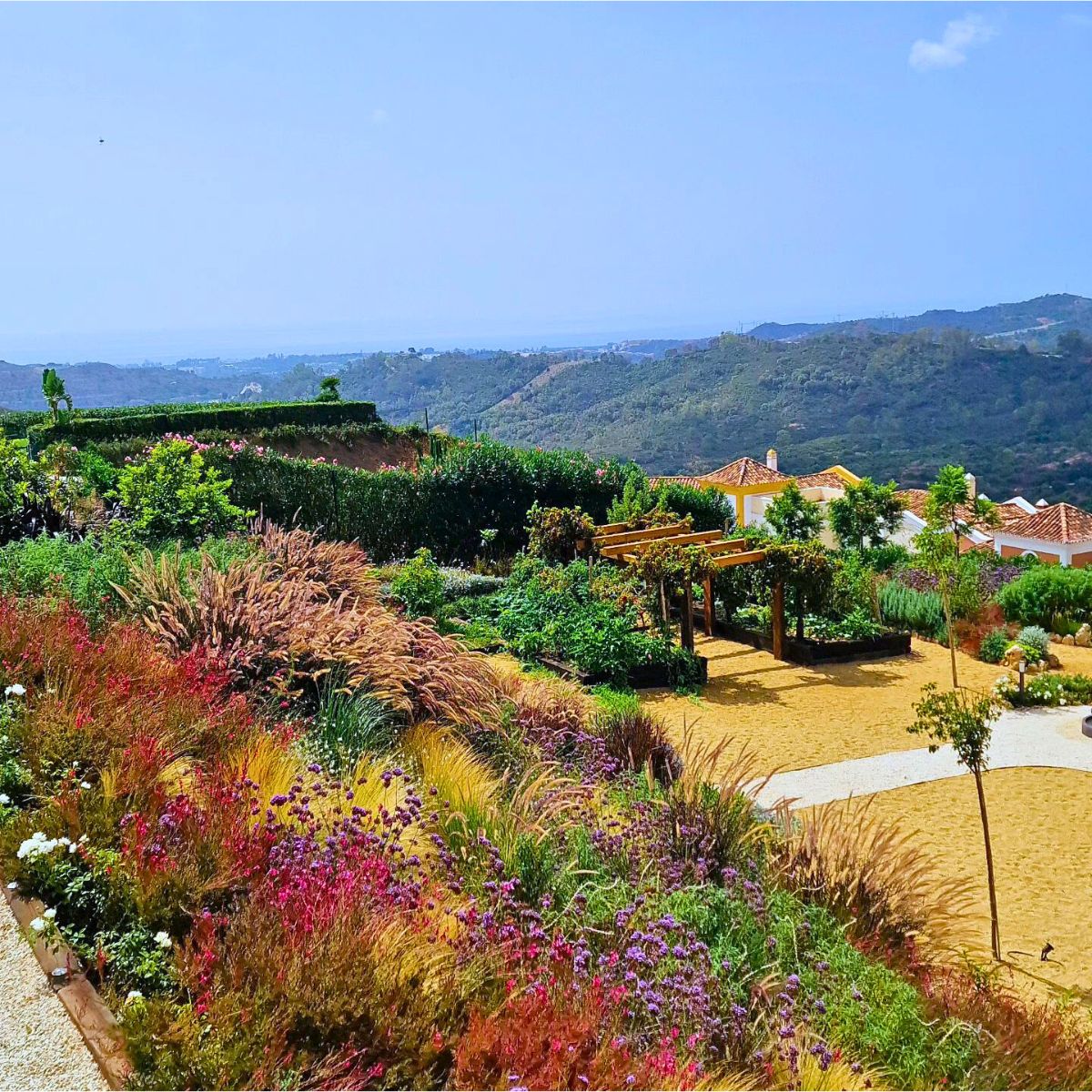
They are generally a feast for the senses, possessing lush plantings, bright colors, and fragrant flowers. Soft pastels, terracotta pots, and ornamental tiles contrast beautifully with the dry, sunny landscape, while seating areas are a must to enjoy the outdoors.
In addition, water features add a calming sound and a cooling sensation. Plus, the use of stones, pebbles, and gravel further reflects and enhances the region's natural landscape and its aesthetics. So, here are some features to include in the gardens.
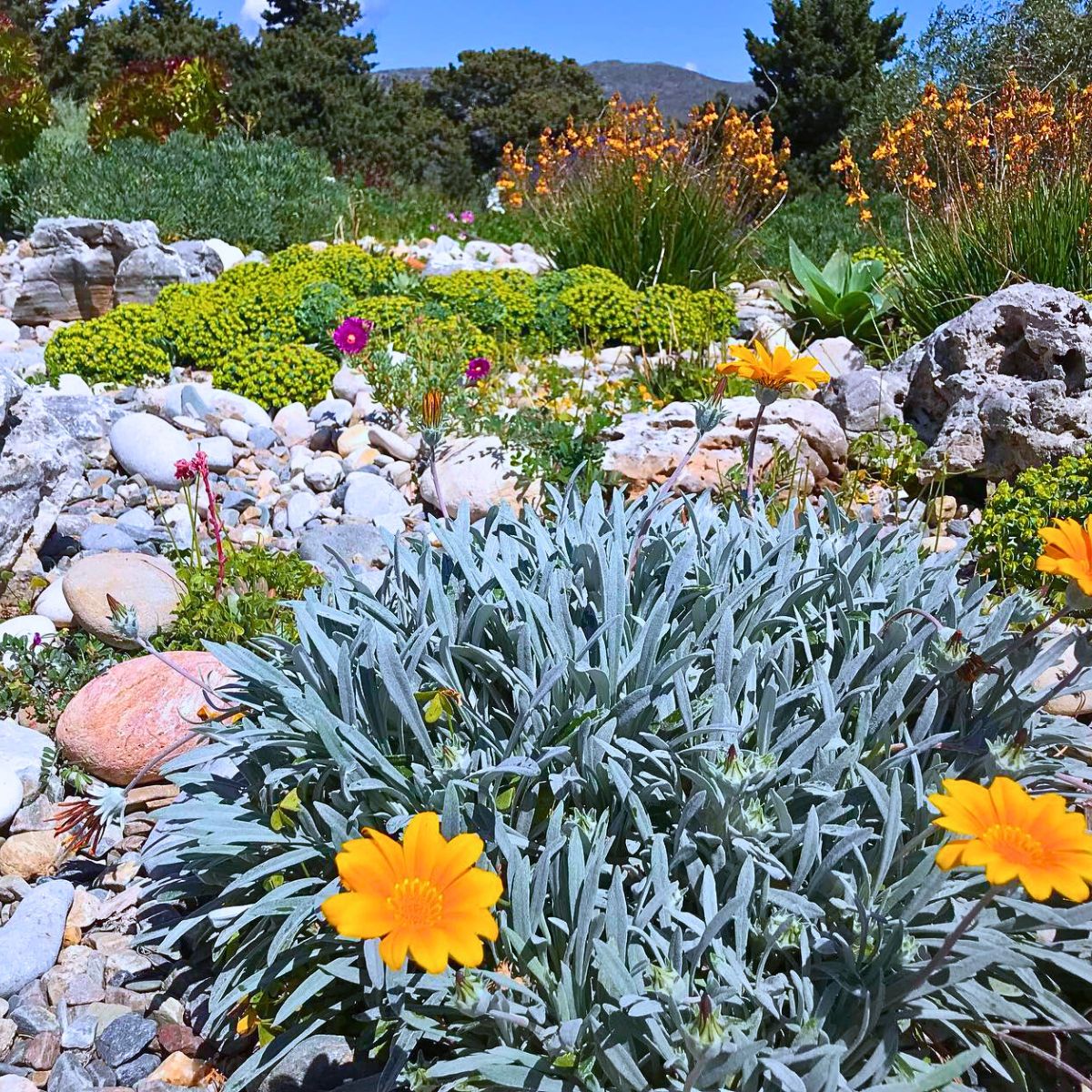
Photo by @mediterranean_gardening_greece
Seating Areas
Mediterranean gardens are designed with the outdoors in mind. They provide ample spaces to relax and socialize. Shaded seating areas are, therefore, necessary to escape the summer sun, and can be created using pergolas, courtyards, or even a simple patio umbrella. Pergolas, in particular, are perfect.
They are decorative structures that provide necessary shade during the sunny summer months and are often adorned with climbing plants like jasmine or roses to scent the evening air. Al fresco dining, hence, becomes a luxurious experience in these carefully curated spaces.
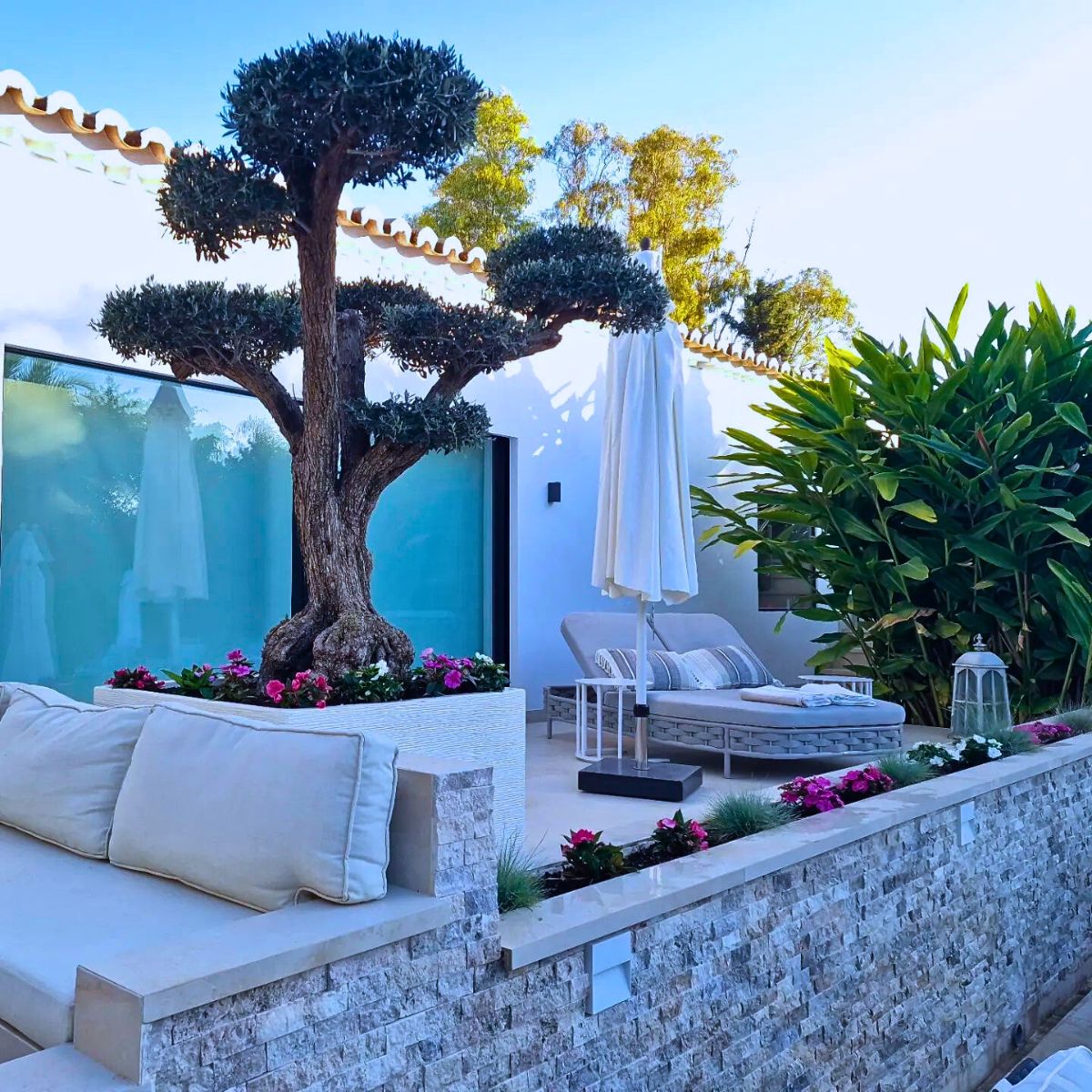
Water Features
Water is an essential element in Mediterranean garden designs. It cools the surroundings during the hot summer season. From ornamental ponds and fountains to shallow pools and misters, the sight and sound of water provide a calming respite from the dry heat. These features also attract butterflies, bees, and birds to the garden thus creating a thriving fauna ecosystem.
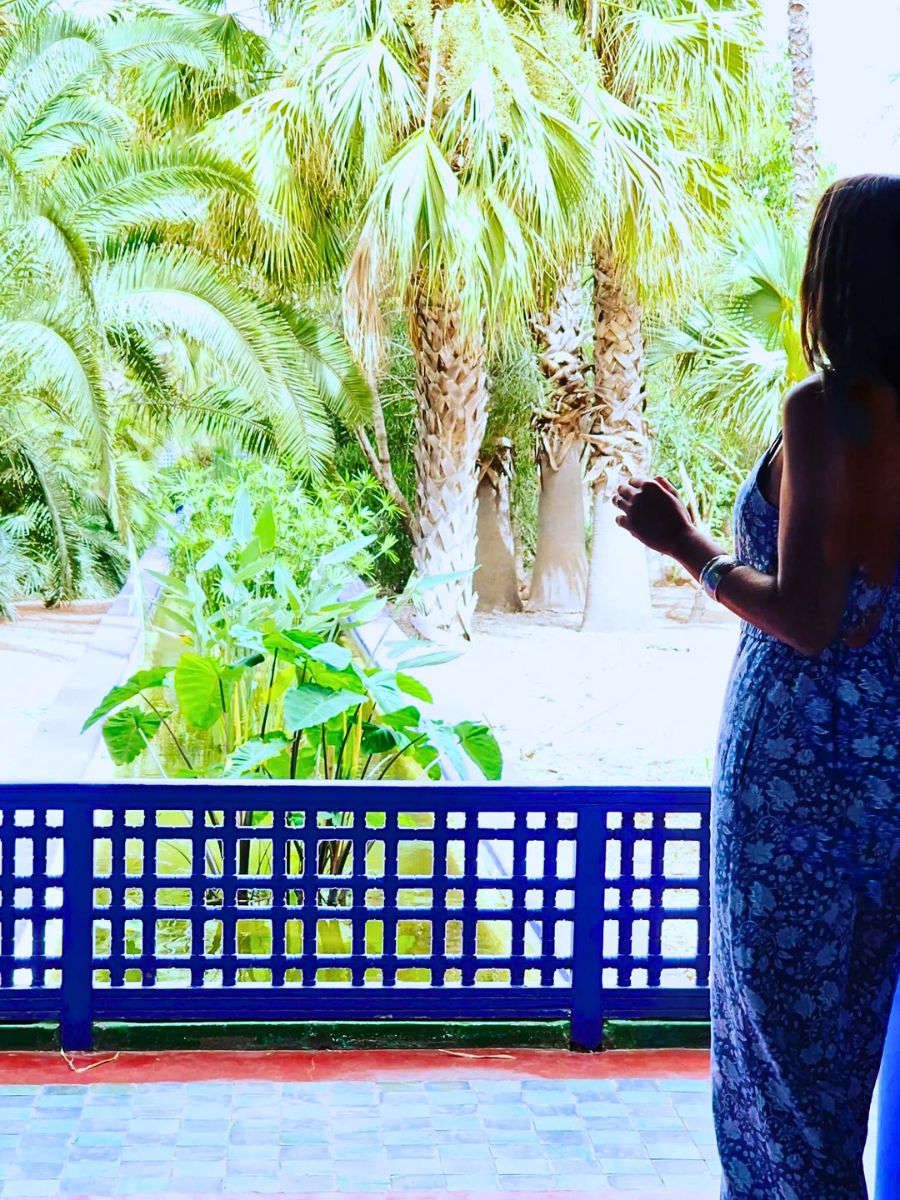
Pots and Containers
Terracotta pots and jars are a signature feature of Mediterranean gardens. Used as both focal points and for container gardening, they come in a variety of shapes and sizes, from simple pots to large urns. When using pots and containers, one needs to ensure they have wide bases for stability. These clay pots are ideal because they cool by evaporation, unlike plastic variants that absorb heat. The plants and flowers grown in these pots should, however, be regularly watered, as the pots have smaller water reserves compared to plants grown directly in the ground.
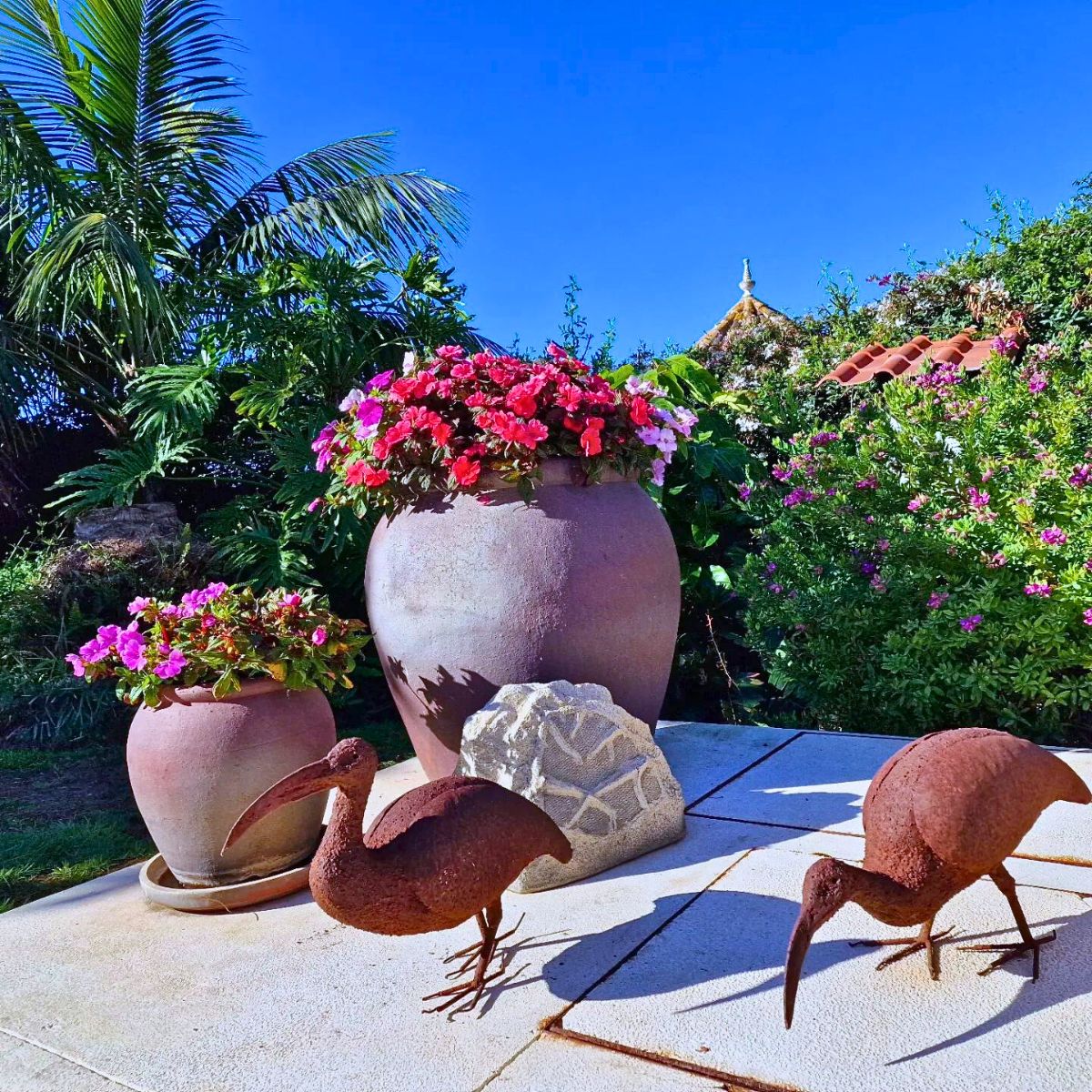
It is, likewise, important to add a glazed saucer beneath the pot for extra moisture. Mediterranean gardeners, faced with water scarcity, often replace lawns with paving or gravel to reduce water usage and maintain a low-maintenance space.
Pebbles, Cobbles, and Tiles
Pebbles and cobbles are another key feature of the Mediterranean garden's aesthetic. Woven into elaborate designs, these stone mosaics that date back to ancient times, are a lovely addition to pathways and pavements. Mediterranean towns and villages use these creatively to add a touch of history and charm. With their flair and color, glazed tiles are another signature element, adorning stairs and walls with elaborate patterns and rich color accents.
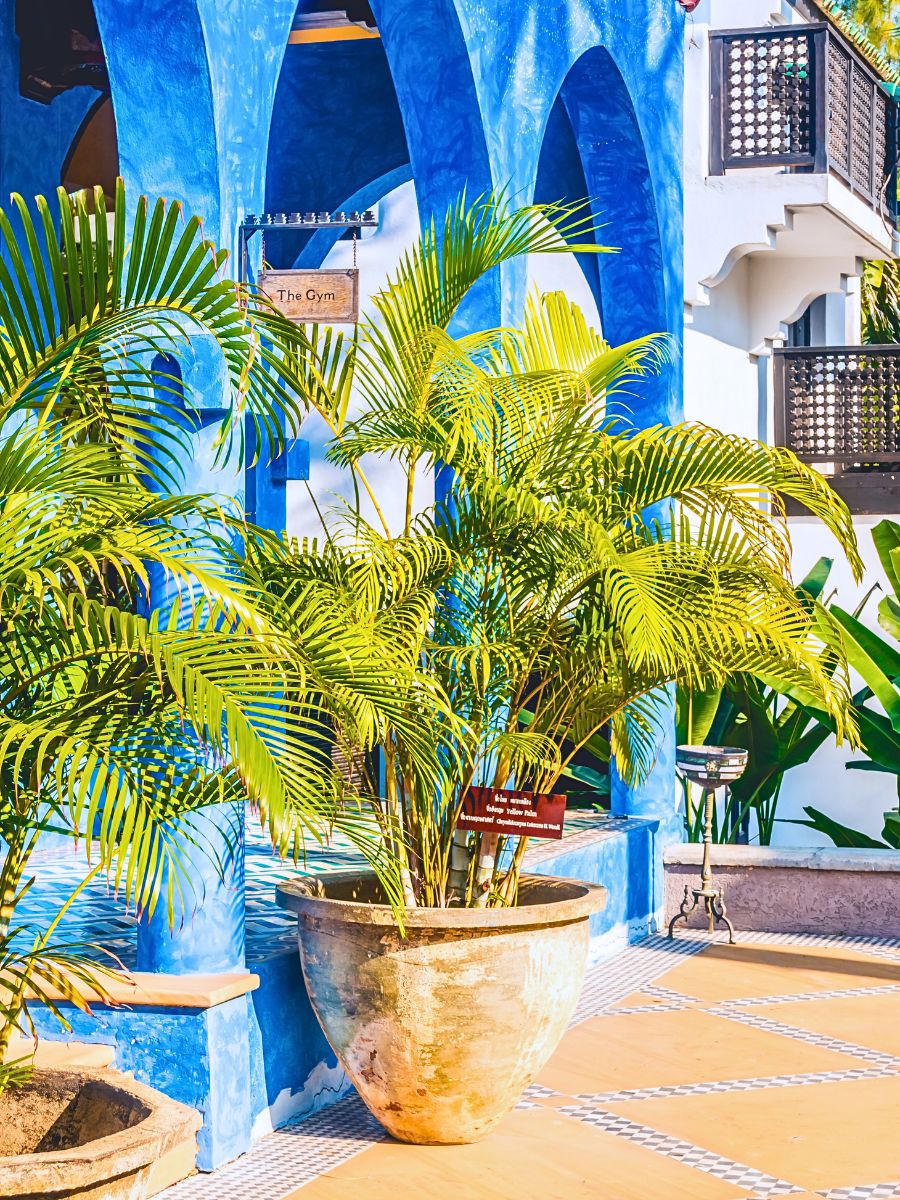
Plants and Foliage
A range of plants thrive in the Mediterranean climate and are adapted to endure long, hot summers and drought-like conditions. These adaptable plants can withstand drought and are a key feature of Mediterranean gardens. They include evergreen shrubs such as lavender cotton (Santolina chamaecyparissus), and lavender, whose soft purple-hued foliage with silvery undertones helps conserve water.
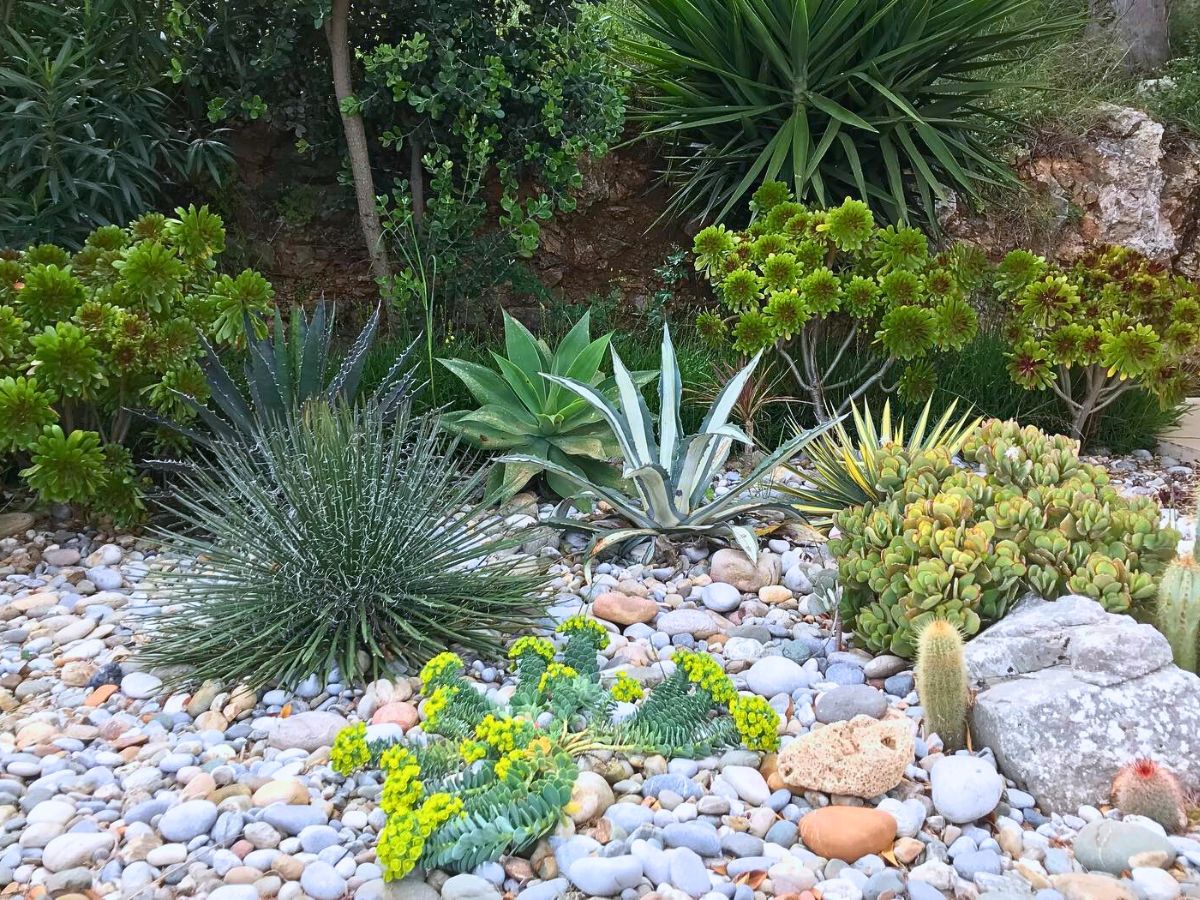
Vining plants, like Bougainvillea, Jasminum, and Wisteria — which you can read about — often structure and create a lush canopy for shade. On the other hand, citrus trees, olive trees, and Italian cypress add a touch of extravagance, while ornamental grasses, like blue fescue, provide the required structure and color for the garden.
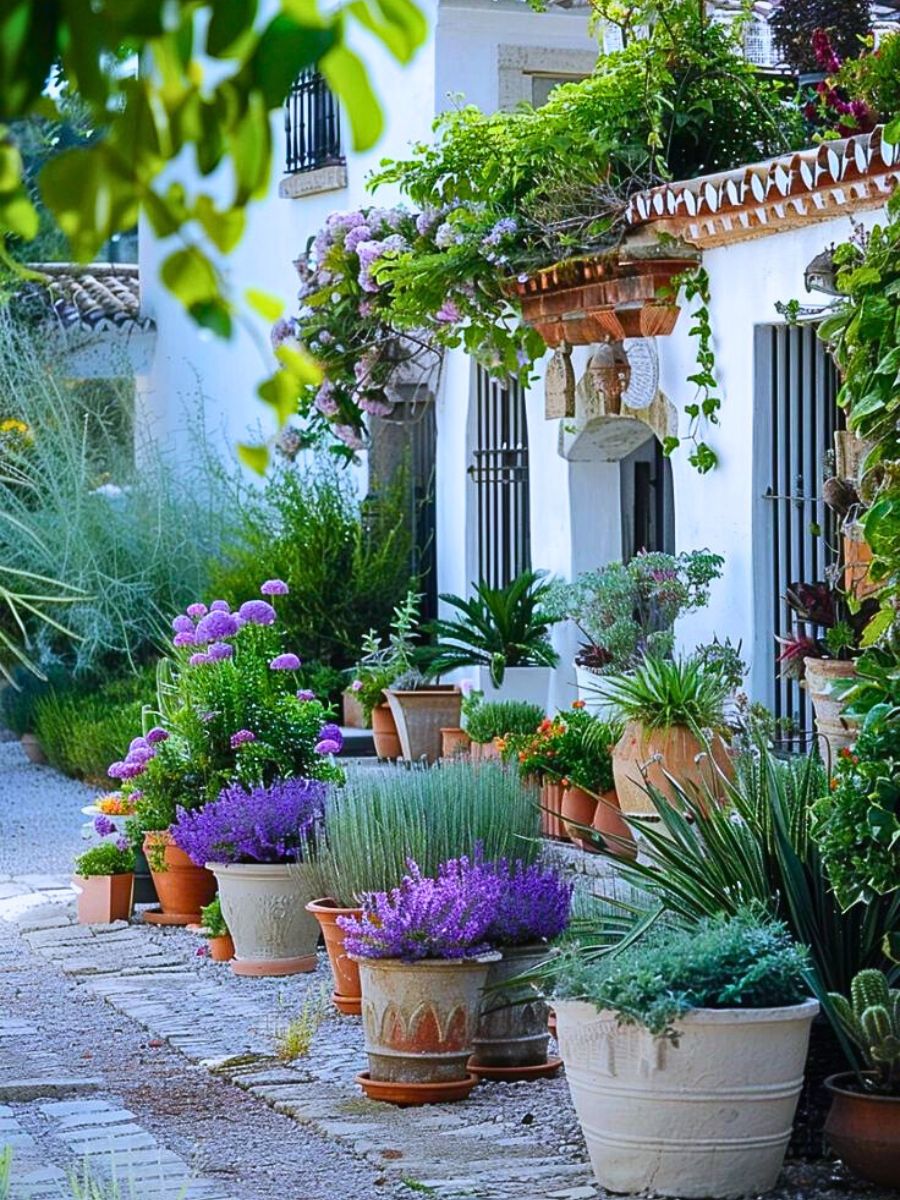
Photo by Malle
In addition, plants like agaves, with their spiky, fleshy rosettes, Artemisia (wormwood), which possesses aromatic, finely cut silvery foliage, rock rose, lantana, Mediterranean spurge which is a statuesque evergreen with distinctive chartreuse flowers, Genista hispanica (Spanish broom), Laurus nobilis, which has glossy green leaves and is great for cooking, rosemary, Mexican bush sage, Stachys byzantina (lamb's ears), Yucca, and orange, and lemon trees - though requiring shelter during winter - also add a true Mediterranean flair.
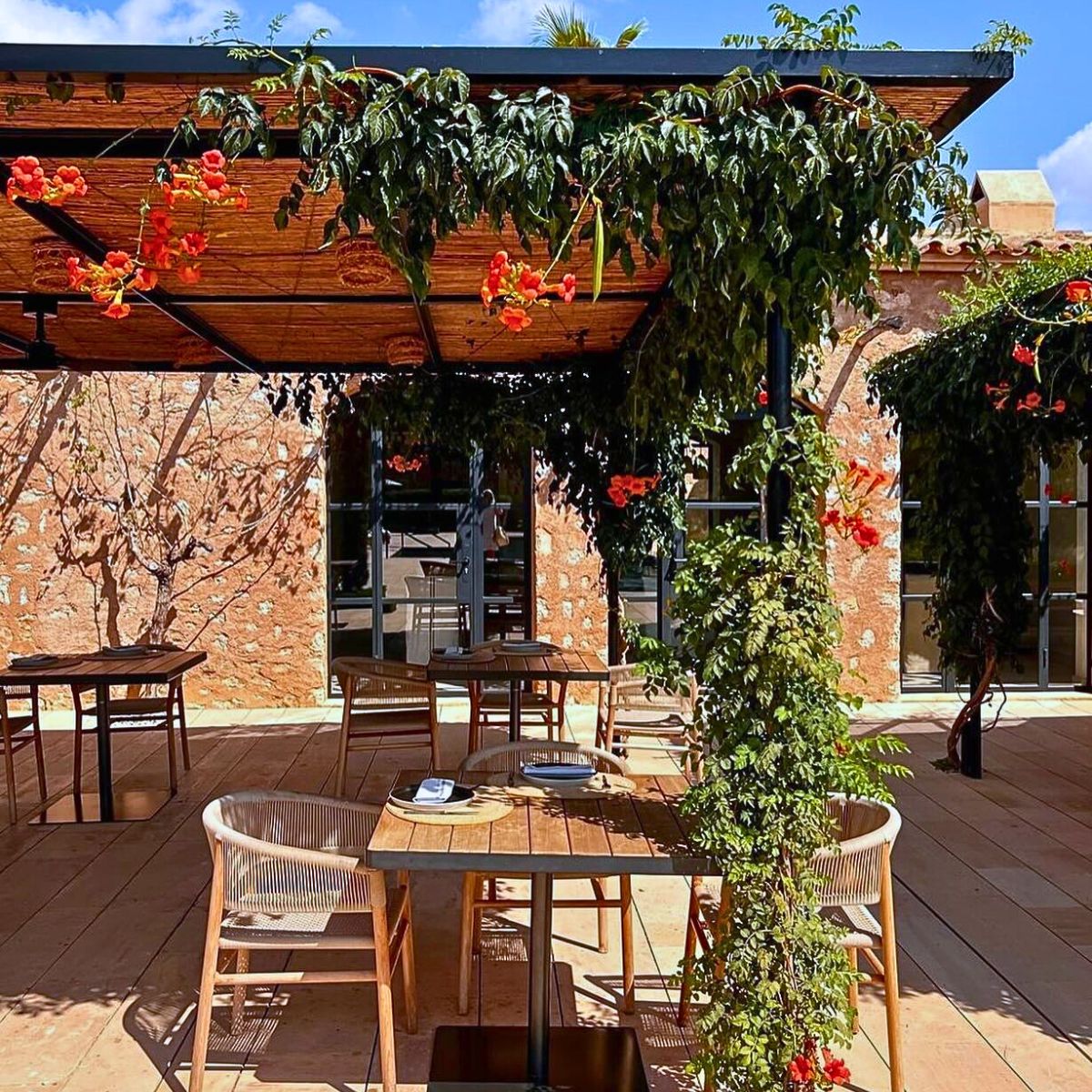
In addition to these Mediterranean natives, other plants from similar climates can thrive in the gardens. Catmint, a mint relative with clusters of blue flowers, zonal geranium, grown for its bold colors and often used in landscapes, globe thistle, with its spiky, globe-shaped flowers in bold colors, and Jerusalem sage, a shrubby evergreen with unique whorls of flowers, are ideal.
All the plants and flowers chosen for these gardens reflect the region's flora and require little care once established. They, in essence, evoke the true essence of the Mediterranean!
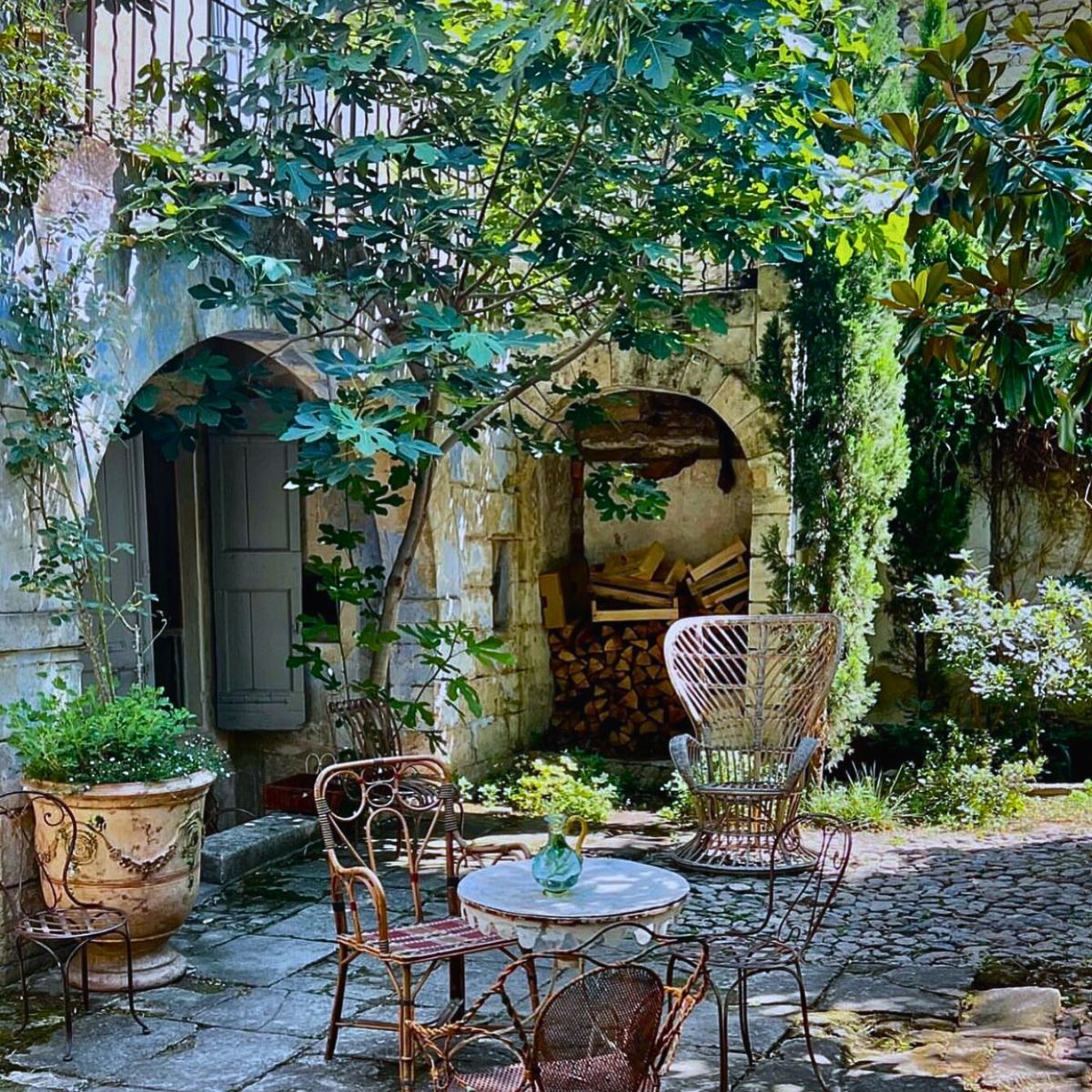
Creating a Relaxing, Low-Maintenance Haven
Mediterranean gardens are designed with the key purpose of enjoyment. While the shaded areas provide a place to escape the sun and socialize, they also invoke the image of leisurely siestas. The pergolas, courtyards, and seating arrangements inspire al fresco dining and entertaining. The scent of jasmine and other fragrant flowers delightfully fills the air, while water features create the much-needed serene air.
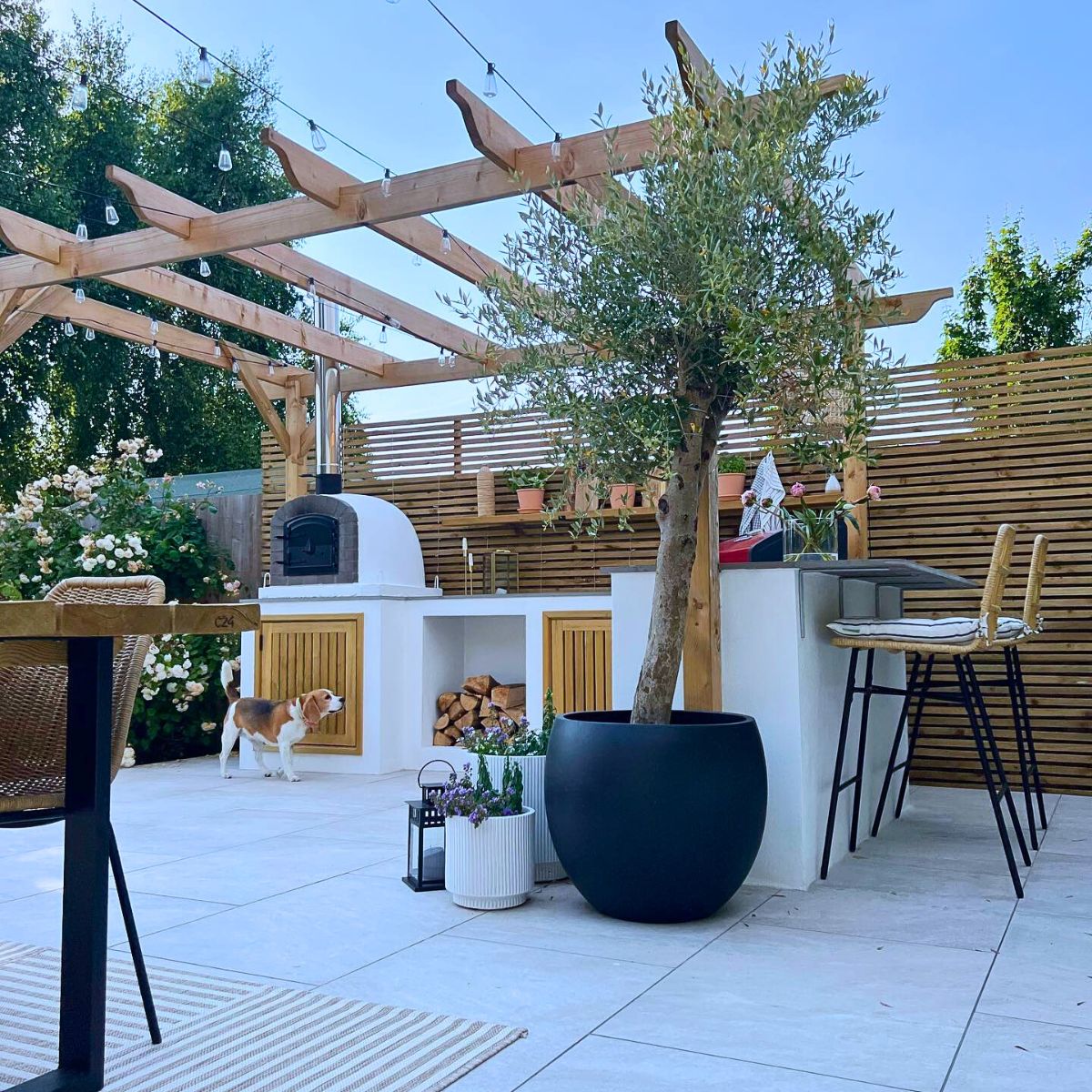
The drought-tolerant plants in these gardens make it a low-maintenance affair. Gravel and paving replace thirsty lawns, reducing water usage and maintenance, while pots and containers, especially terracotta, add a touch of charm and can be used to grow plants and flowers that inspire a true Mediterranean feel.
Key Points When Incorporating Mediterranean Garden Style at Home
If you're inspired by these sun-kissed gardens, then there are some key steps to take while incorporating them into your own space.
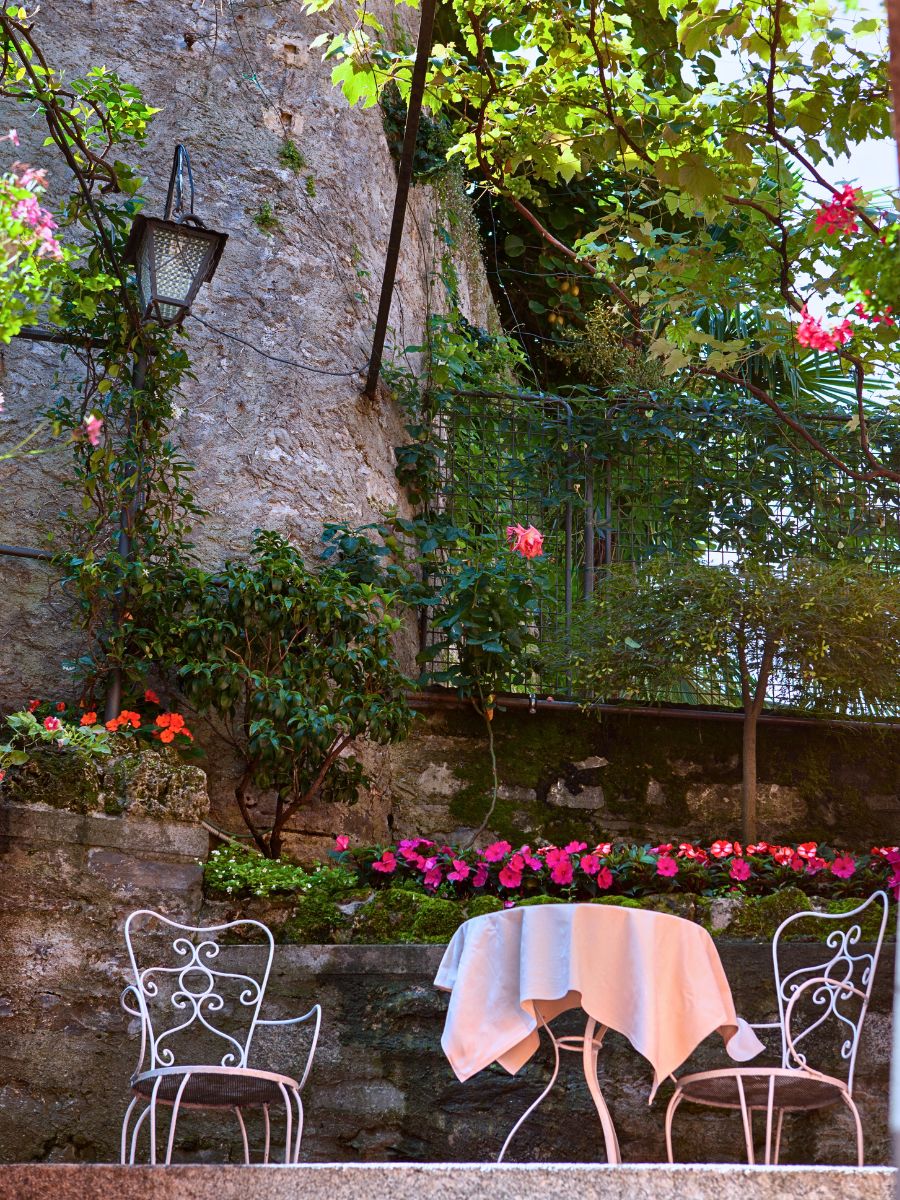
- Create shaded areas using the pergolas or large umbrellas to provide respite from the sun. Train the climbing plants to grow over these structures for a romantic, soft canopy.
- Add water features, like fountains or shallow pools, to cool down the area and attract wildlife.
- Use terracotta pots and containers to grow citrus trees or herbs. Group the pots together for an exciting display.
- Replace lawns with gravel or paving, and edge them with drought-tolerant plants like succulents.
- Incorporate stone walls and terraces for dining al fresco. Warm-toned paving and colored walls echo the region's aesthetics.
- Experiment with different textures and colors in your planting choices – evergreen shrubs, ornamental grasses, and fragrant flowers will bring a true Mediterranean vibe to the garden.
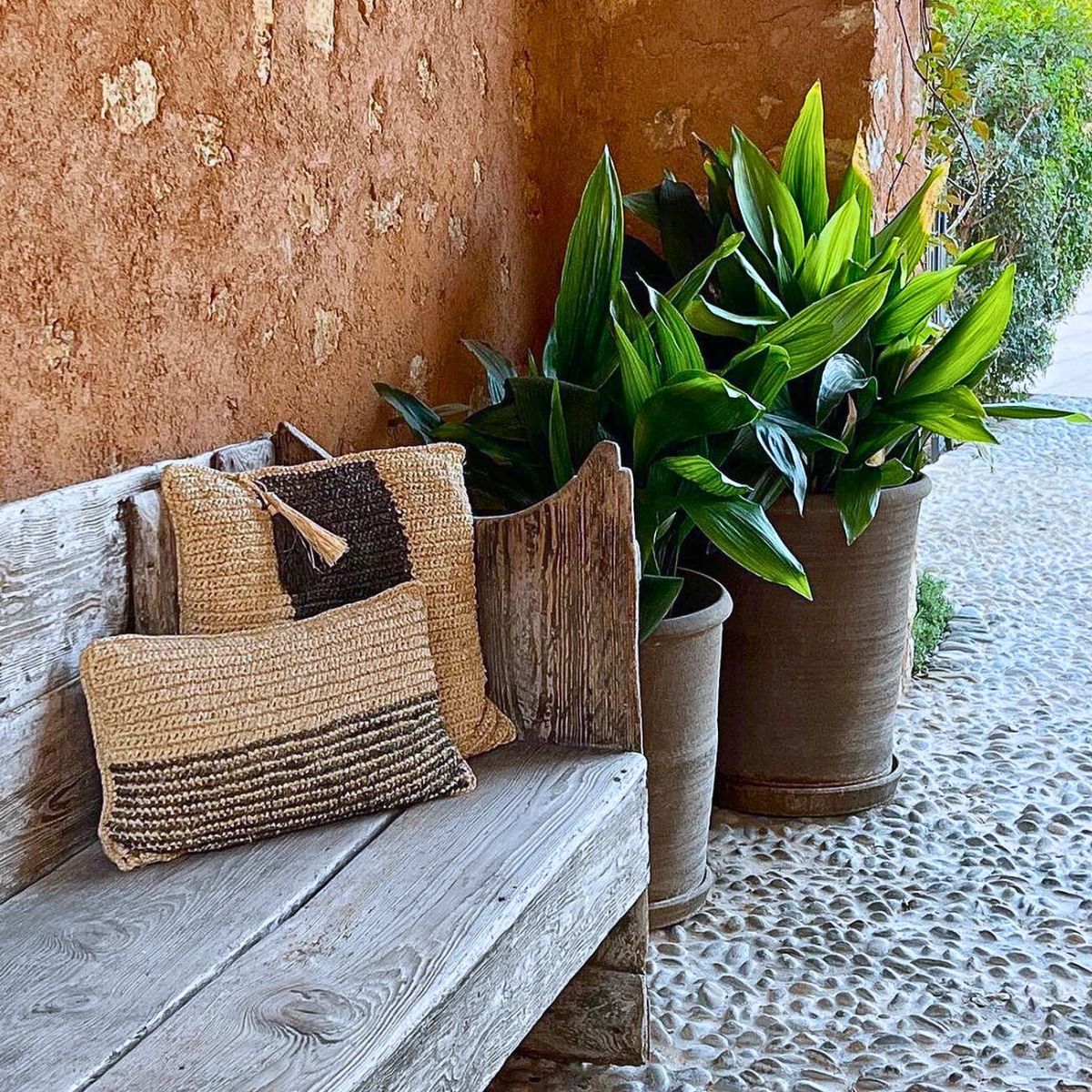
With these in place, whether you have a small courtyard or a spacious backyard, bringing this garden’s aesthetics into your home can bring a sense of relaxation and exquisiteness inspired by the beautiful Mediterranean countryside. It is a great way to bring a piece of your favorite summer holiday destination right into your own home!
Feature image by lifeforstock, header image by mrsiraphol.

